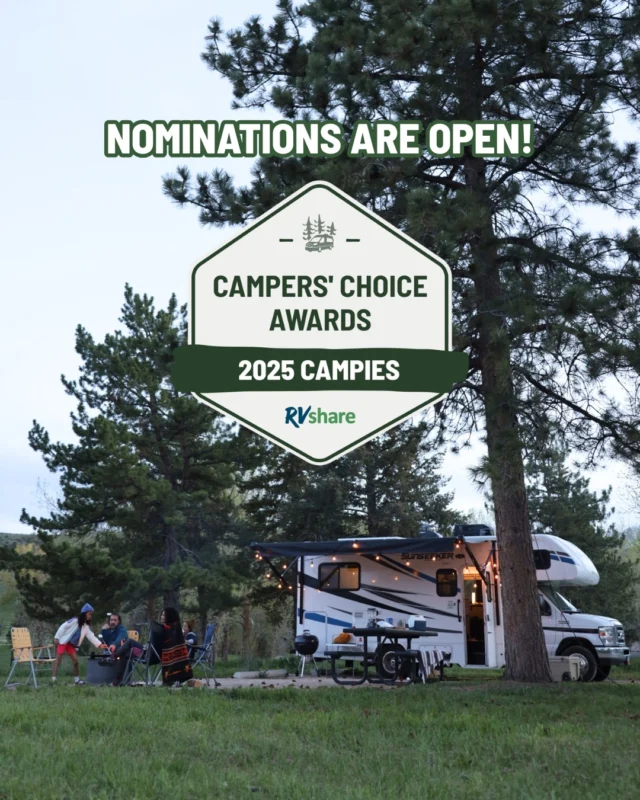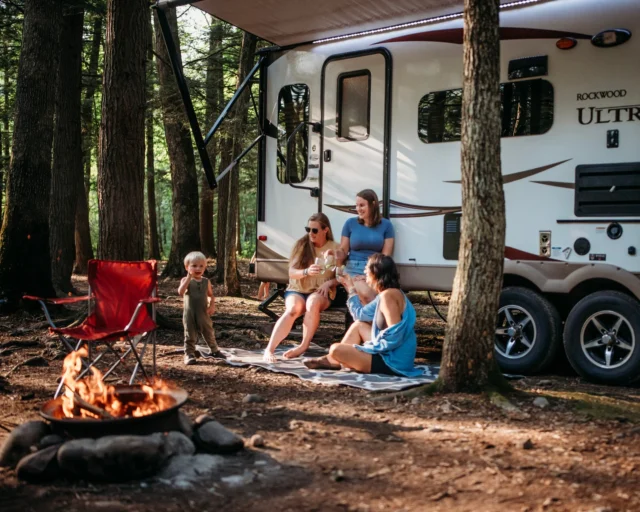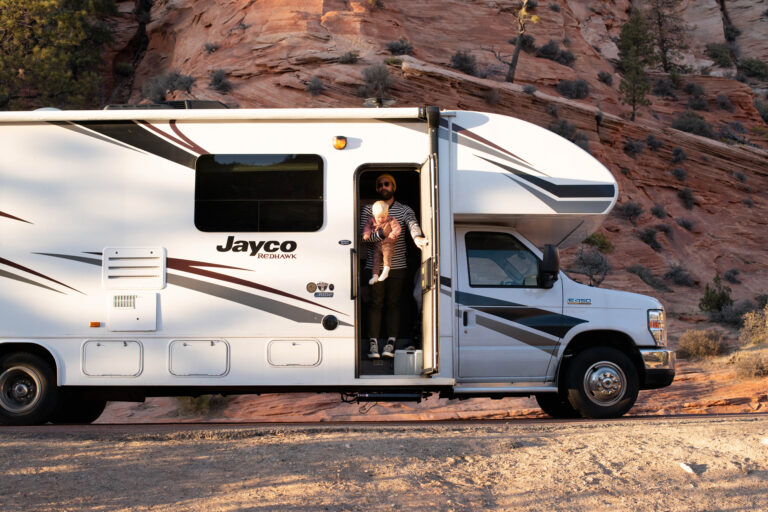
Maybe you’re spending late nights Googling, getting stoked for your first-ever RV adventure. Or maybe you’re a veteran camper who’s so obsessed with the mobile life that you can’t stop learning more about it.
Either way, if you’re hungry for information on RV living, you’re bound to run into some common misconceptions. This can be especially problematic for new RV owners and renters, who may find themselves making “informed” decisions based on information that simply isn’t accurate.
Luckily, we’re here to help you steer clear of that conundrum with some basic RV information. Whether you’re looking to buy or rent, whether you’re a seasoned RVer or don’t know the difference between a Class A, Class B, Class C or fifth wheel, here’s the honest truth about eight widely-believed myths regarding the RV lifestyle.
RV Information for Beginners
Here are a few very basic misconceptions about RVing to get us started.
Myth 1: RVing is a frugal form of travel.
One of the most common reasons people give when they talk about taking up RV travel is that it’s an incredibly budget-friendly and frugal way to live. And while it’s totally possible to live frugally on the road, it’s also easy to spend way more than you bargained for.
On top of basic expenses like food, motorhome rental prices, and any vehicle loan payment you may have to make, you also have to account for RV maintenance, which is unavoidable and expensive, and campground fees, which can be quite pricey — try $75 per night in high-traffic areas at peak season! Oh, and don’t forget that your rig uses lots of gas. And you were still hoping to have some fun money, too, right?
Of course, if you eat cheaply, ditch your cell phone, and spend most of your time camping in the woods, all of those costs go down. That’s one of the best things about RVing, actually; although your expenses don’t disappear entirely, you do have a lot more control over them than you would at home. You can’t just pick up a regular house and drive it to a spot with a lower monthly mortgage payment, after all.
Myth 2: A bigger RV is better.
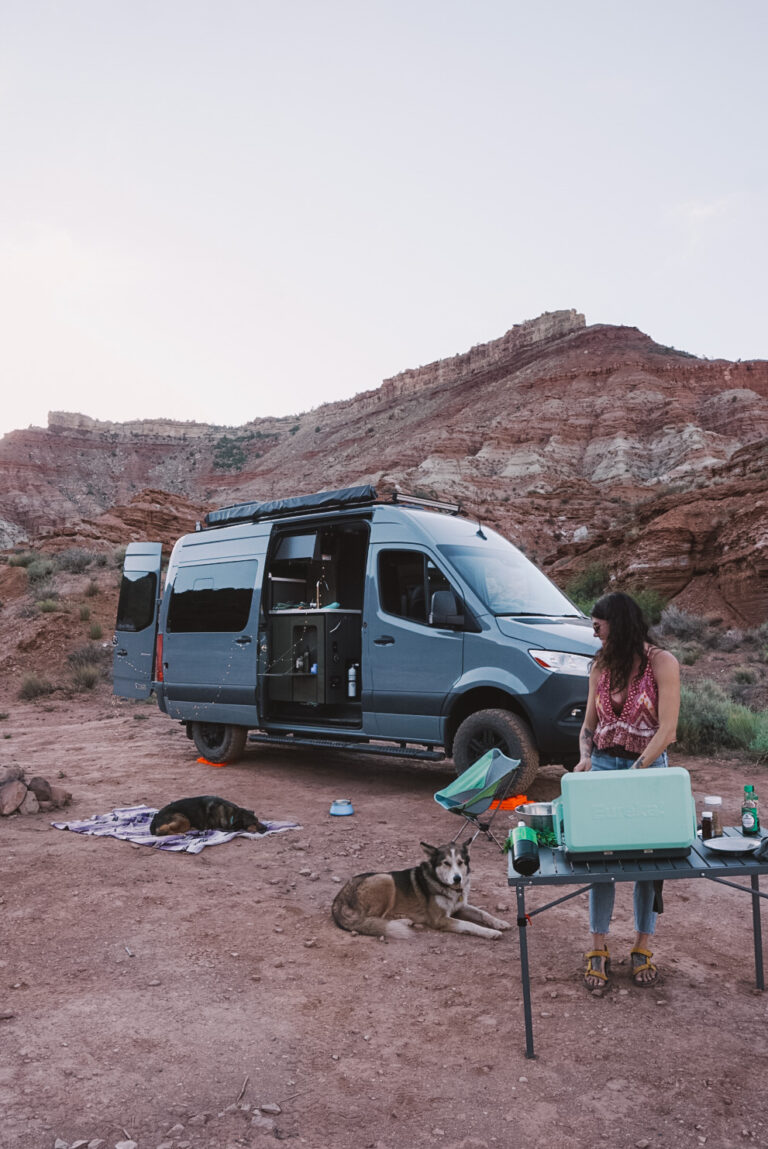
As with many other major purchases we make in life, it’s tempting to conclude that bigger is always better. You have more storage space, more amenities, and more room to stretch your legs. What could possibly be wrong with that picture?
Well, for starters, you’ll also have a higher fuel cost to contend with, and less accessibility to smaller wilderness campsites — and even some developed ones. Your large RV will also be more difficult to drive, and backing up or tight turns may be treacherous. Finally, all that extra storage room simply means you’ll find more stuff to store, which defeats the minimalist camping lifestyle that draws so many of us to RVing in the first place. Spend your time and energy on experiences rather than things. You’ll be a lot happier… and have less stuff to dust.
Myth 3: RVs are only for the elderly and retired.
For many, RVing immediately conjures a cute, old couple who’ve been married for decades and have likely already retired, spending their “golden years” completing the grand tour of the country they’ve been imagining since they were kids together.
And while that couple does exist, they’re not the only people you’ll meet at the campground. Far from it, in fact!
As remote working options become more and more accessible, young people are taking advantage of their location independence to take on full-time travel — and RVing is a great way to do so. Young couples, solo adventurers, and middle-aged families all take advantage of the unique flexibility of RV living, and help create a rich and diverse camping community to interact with while you’re on the road. So don’t think you’re not eligible to start camping if you haven’t yet celebrated your sixty-fifth!
Information on RV Travel
Now that we have the essentials out of the way, it’s time for the rubber to meet the road — literally. Here are some tips about RV travel and camping.
Myth 4: RVing will automatically bring me closer to nature.
If you envision yourself set up out in a beautiful natural landscape, starting every morning with singing birds and sunrays rising over mountains… you might not be far off. But RV camping isn’t only this kind of idyllic boondocking, and in fact, it can be hard to find prime campsites like these.
If you don’t intentionally set out to find the best natural camping spots, you may find yourself camped on concrete-slab sites in cushy, private campgrounds most nights, or even overnighting in a Walmart parking lot. And once you do park, it’s easy to flip on your TV and sit on the couch instead of getting outside and exploring. In short, if you want to be outdoorsy, RVing is a great way to do it — but you’re going to have to put in the effort to make adventure part of your experience!
Myth 5: The free WiFi at campgrounds is totally going to work.
If you are planning on spending lots of time camping in resorts, and if that plan is at all driven by a desire or need for internet connectivity, you may want to sit down for this.
Because while it’s better than it was a few years ago, campground WiFi is notoriously hit-or-miss, even when it’s well-advertised as a “free” perk included with your nightly camping fee. If being online is important for you, you’ll likely need to find — and pay for — some kind of backup plan, such as a mobile hotspot or a cell phone plan with tethering and unlimited data. You can also look into devices that boost your ability to pick up ambient WiFi signals, but be aware that none of this comes cheaply.
Full Time RV Information
Thinking about ditching your non-mobile lifestyle and taking up RVing full time? Here’s what you need to know.
Myth 6: RVing will make me a more carefree, spontaneous person.
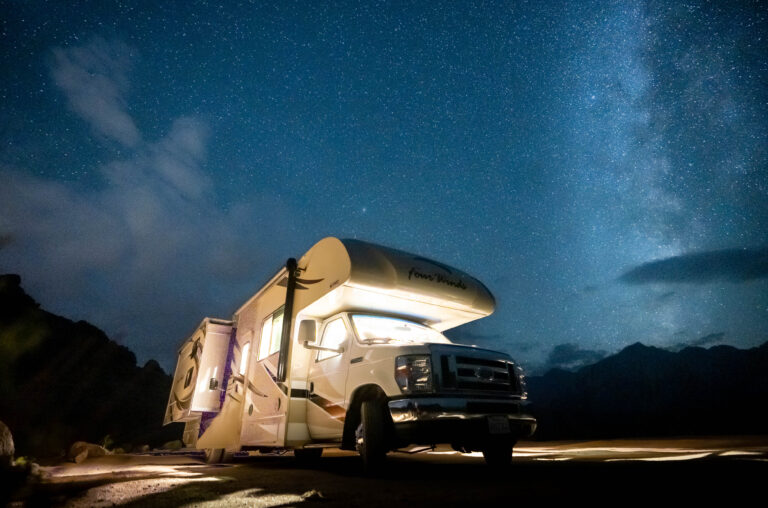
I don’t know about you, but I always imagine myself as a better person when I’m traveling. I’m less stressed, ruled by fewer deadlines, and generally more open to life’s little rearrangements.
But that fantasy doesn’t necessarily pan out. As a full time RVer, I get just as nail-bitey when I discover I have a flat tire on a day I’d planned to travel, and just as frantic when several projects are due at once.
In other words, if you’re not already naturally spontaneous and flexible, the unpredictability of full time RV living may help you move in that direction — but it won’t automatically change you. In fact, it may do little more than stress you out. So it’s worthwhile to think twice about whether or not full timing is right for you. Be honest with yourself, and don’t forget: You can always try an extended trip before taking the full-time leap.
RV Camping Information
Getting caught up wondering where you can go camping? Good thinking — because it’s not exactly a free-for-all out there.
Myth 7: There are tons of spots to camp in the wilderness for free, no matter where you are.
If you’re into the idea of getting off the grid, RVing is a great way to do it. Many campers spend a lot of their time boondocking, or setting up camp on public lands with no hookups, and find campsites where they don’t have to pay very much at all to do so.
However, it’s not permissible to simply set up camp on any free land you might find. In fact, a huge amount of American land is privately owned and not RV friendly, even if it looks undeveloped. Even some public lands carry minor camping fees and have strict rules you’ll need to follow.
To figure out where you can safely set up camp for the night, get in touch with the BLM, or Bureau of Land Management. The RVing community has also developed lots of lists, apps, and resources to help you find good wild campsites, although some veteran campers are remiss to share their secrets. After all, if everyone finds out about their favorite spot, it’ll soon be too crowded to be nice!
Even after taking these myths into consideration, RVing is a unique, fulfilling — and, yes, sometimes challenging — way to see the world, or simply to live your day to day life. Just make sure you spend the time you need to find the right information before you commit yourself. Reading this post was a good start, if we do say so ourselves. 🙂
Happy trails!



